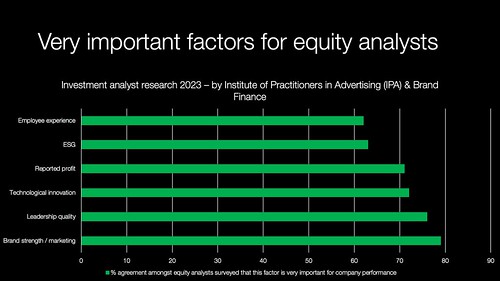9 minutes estimated reading time
Premature obituaries of CMOs
Almost 11 years ago business academic Dominique Turpin wrote an article describing CMOs as ‘dead’. Turpin worked at the IMD business school in Switzerland and the article was a classic bid for thought leadership.
It’s just the kind of thumb-stopping headline that drives readership of LinkedIn content where it was published.
… the decline in the CMO’s influence is alarming, especially at companies that claim to put the customer first but in reality are product-driven.
True, some companies have marketing in their DNA, especially firms that had a visionary founder with a great understanding of the customer. Examples include Ingvar Kamprad at IKEA or the late Steve Jobs at Apple.
But these are exceptions. The norm these days is that the CEO sets the overall strategy, the R&D and innovation teams design the product, and the CFO determines pricing and departmental budgets. No wonder some CMOs feel unloved and are considering a career change
Dominque Turpin – The CMO is dead (August 21, 2013)
Turpin goes on to explain what he believes that there are four causes, that together result in no CMOs.
- Most CMOs aren’t focused on planning and delivering customer value
- Short-termism has meant that organisations have become CFO-focused – a la ‘Neutron’ Jack Welch’s perception of shareholder value, rather than a balanced scorecard approach
- Marketing impact is hard to measure
- Organisations lack a clear understanding of what marketing is
Instead Turpin wanted to create a CCO role – chief customer officer. He saw that this role could sit with the CEO, the CFO or the former CMO. While the CFO as CCO might take the fuzziness out of marketing as Turpin put it, there would be a tension between their natural ‘ neutron Jack Welch’-nature and being customer-centric. What about the CEO? Turpin pointed out that they tend to come from engineering or finance. Both are efficiency focused disciplines with incremental short-term views. Again both are barriers to customer-centricity and would be largely blind to long term effects.
3G Capital
Move forward six years and a CFO-driven approach to running Kraft Heinz by 3G Capital saw a massive destruction of value some $15.4 billion from the $50 billion paid to buy out the business in the first place. The quarterly dividend got cut and shareholders filed lawsuits. The founder of 3G Capital talked extensively about the GE Way driven by Jack Welch as a key influence on their approach.
Scott Galloway
Professor Scott Galloway is a serial entrepreneur who is provocative, interesting and often right.
On CMOs Galloway said
“If you’re the CMO that shows up and says ‘I need more budget so that I can do a brand identity study, can spend money on advertising and get invited to great conferences and hang out with people who are more interesting and better looking than me by spending media dollars that are less and less impactful’ then you’re like the second lieutenant in Vietnam — you’re dead in 18 months or less,”
Scott Galloway
There is a lot to unpack in that statement, but it doesn’t spell the end of the CMO or advertising.
Pax Americana to Pax Australis
In this post Galloway taps into a wider criticism that we’ve seen of American marketers over the past few years. When I was in college American professors and marketing thinkers set the tempo for the profession around the world. As Mark Ritson recently wrote
In the 20th Century marketing was American. The discipline, the theories, the textbooks, and the approach. To arrive at Wharton in 1994 was to see a future that was not just untenable in the UK, it was one nobody back home was even aware of. Marketing was a decade ahead of anything in the UK. The American marketers I met, academics and practitioners, were so advanced it made my head spin.
Mark Ritson – Effectiveness ignorance has left American marketing lagging behind the rest of the world (Marketing Week)
Text books by the likes of Philip Kotler and David Baker, were perceived wisdom of old white academics. None of this thinking was evidence-based; beyond anecdotal successful case studies.
One of the ‘secrets’ that marketers and CMOs at large FMCG companies like Mars, Proctor & Gamble, Kellogg’s and Unilever had was access to Australian based marketing science research. This was primarily via their long-term sponsorship of the Ehrensberg-Bass Institute in Adelaide, Australia.
This body of research in turn shook up wider marketing thinking when Professor Byron Sharp published How Brands Grow. (There were other important works as well such as the UK based publications from the UK’s Institute of Practitioners in Advertising – notably The Long and The Short of it and Effectiveness In Context).
While marketing outside the US was shaken up by the works of Sharp and Binet, the US continued onwards in its marketing the way it always had.
Mark Ritson’s recent column on the state of American marketing caused international furore in the marketing community, despite Marketing Week being a UK-only publication. Ritson complained about American marketers lack of awareness about the importance of marketers effectiveness.
This comment on Mark Ritson’s post sharing the article, while humorous has a lot of truth in it:
Okay, okay. Stop throwing big words like vituperative and effectiveness at us simple-minded Americans. Sure, we handed the keys of marketing over to software engineers at the turn of the century. Maybe that led us to a fair bit of myopic strategery here in the very exceptional United States of America.
Michael Simmons, Sendofy
Based on the comments I’ve read, when asked to define effectiveness the answer provided is essentially #IYKYK. Why let a golden opportunity to school American marketers on the wise ways of the world beyond our ample shores slip through your fingers?
I don’t care if you call it Marketingwirksamkeit or efficacité du marketing, what matters is more than just numbers on the scoreboard, but how the points were won. Just the other day I was reading a scholarly piece on the effectiveness of meme marketing by the faculty of Griffith University in Queensland. It hit me. My American, effectiveness ignorance has blinded me. I now lag behind the rest of the world.
While the US obsessed over marketing technology, the rest of the world was attempting (imperfectly) to more knowledge about marketing efficiency and the marketing technology stack. Having worked in the technology sector, it was the last place I would have gone for marketing lessons. At best, marketing as a function was sales support.
A case in point in this mis-application of focus was the relative performance of this year’s Super Bowl advertisements. I realise that this delve into marketing efficiency has at least made the case for a dramatic change in US-based CMOs. But not so fast, CEOs don’t think that their CMOs and marketing teams are performing that badly.
CMOs: from the dog house to the boathouse
American agency Boathouse have been doing an annual survey of CEO attitudes to marketing and their CMOs. The third edition of this survey was published in January this year.
Some of the highlights of the report include:
- CEOs identified what they want their CMOs and marketing teams to address: driving growth, market share/sales, differentiation, improving brand reputation, and “transforming company narrative.”
- 49 percent of CEOs believe their marketing team is “best in class.”
- 40 percent of CMOs are rated “best in class.”
- One point I found quite interesting was that half of CEOs believe the short tenure many CMOs have “is a sign of success, not failure.”
- CMOs’ perceived trust with C-suite stands at 43 percent and 41 percent with the CEO. This has doubled over the three years that Boathouse has been running this research project
- In a bit of an odd note: CEOs believe CMO loyalty is growing, stating that “in a dramatic shift from 2021, the CEO’s perception of CMO loyalty is growing, [as] 8 in 10 CEOs perceive CMOs would take a bullet for them (up from 3 in 10 in 2021).”
- 76 percent CEOs are “integrating A.I. into their organizations” and 90 percent believe that 90 percent of their CMOs are engaging with AI for the benefit of the company in areas such as “content, analytics (about two-thirds), and customer experience or research (half).”
TL;DR CMOs don’t sound as if they will be disappearing in the next 18 months or so as Galloway believed.
C-suite without powerful CMOs get punished.
You could argue that CEO are the ultimate arbiters of CMO success, failure and tenure. But the reality for public companies is the large investors who can vote the CEO of most companies out of office. The key influencer in this decision process is the equity analysts who sit within, or advise client organisations such as fund managers.
Even if CEOs don’t think that their marketing is important enough to have a CMO, their shareholders will. Equity analysts have indicated that they rate brand strength and marketing as more important than reported profit, or leadership quality.
Given that most of the c-suite can’t speak or do effective marketing, they really need their CMOs. Companies like 3G Capital and Reckitt Benckiser have been punished in public markets for failing at marketing, despite operational and financial excellence. Unilever has been punished for its focus on ESG at the expense of brand building and is even under regulatory investigation.
More information
“You’re Dead In 18 Months Or Less”: Scott Galloway On The Future Of CMOs – B&T
UPS’ Removal Of CMO Role Reveals The Real Problem Facing The C-Suite
Boathouse CEO Study on Marketing and the CMO | Boathouse
Fortune 500 companies are cutting CMO jobs | Fortune
The Unspoken Truth About CMO Churn | AdWeek
Marketers, investing in market research is not superfluous | Marketing Week
Gartner Survey Shows 73% of CMOs Will Fall Back on Low Risk, Low Return Strategies for 2021
9 recent CMO departures that point to the radical transformation of marketing | Marketing Dive
Mark Read: CMOs have become too much like chief communications officers | PR Week


